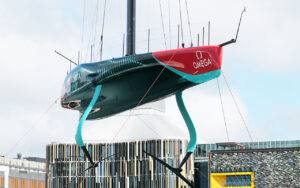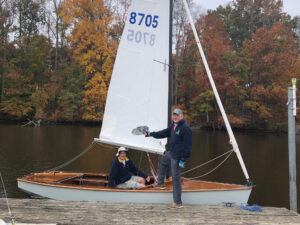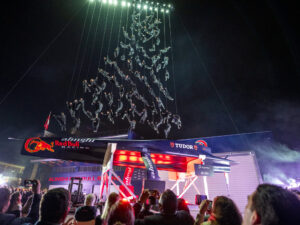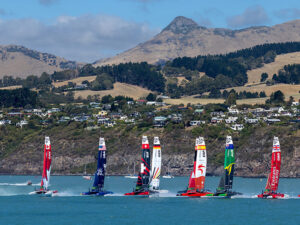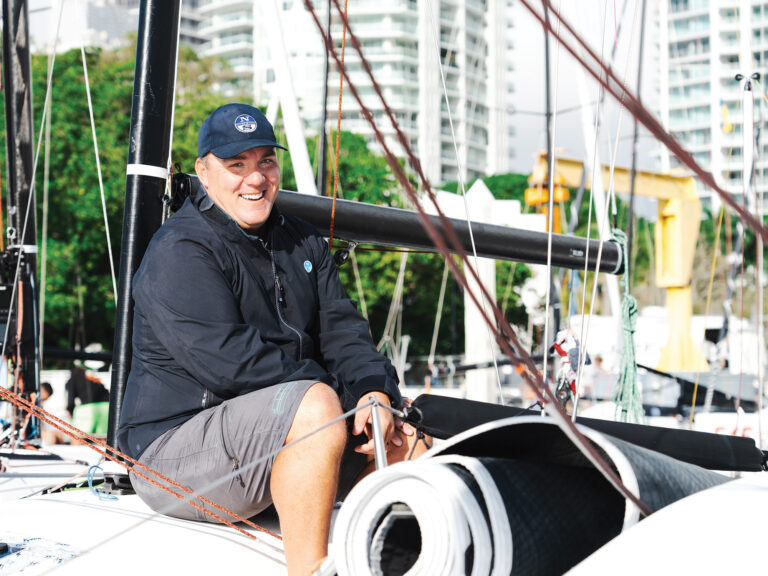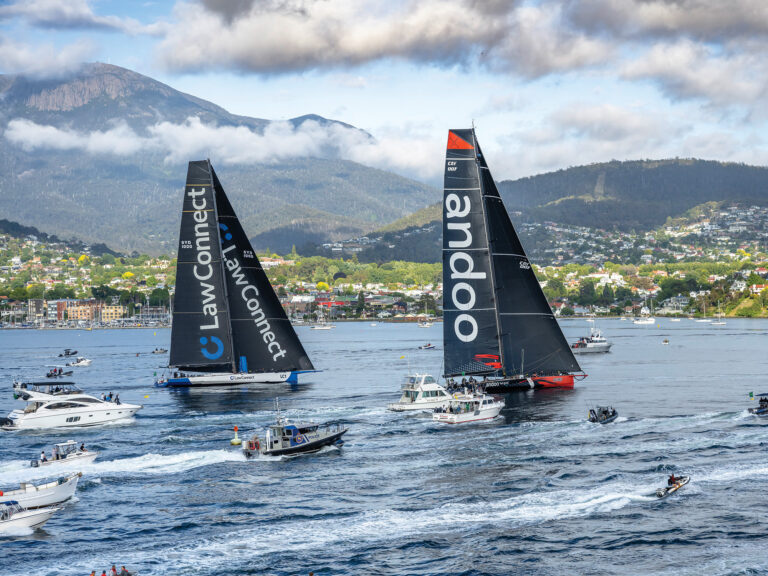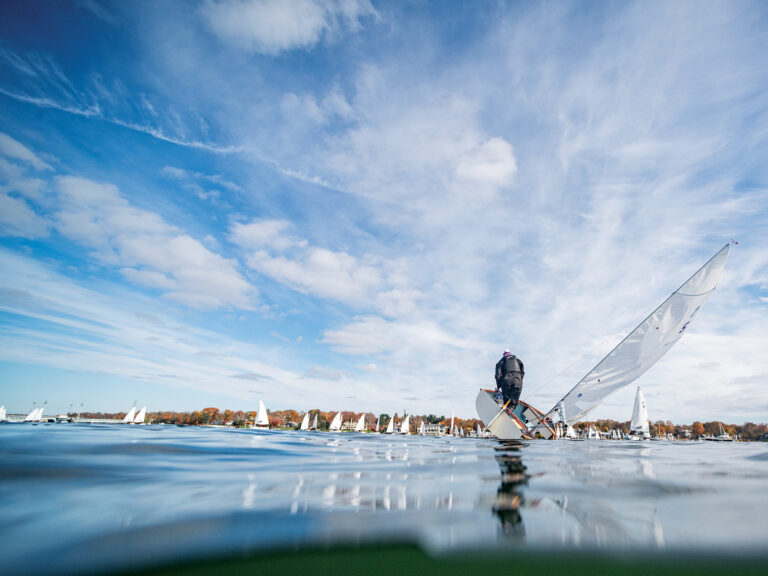For a strong dose of the athletic side of the U.S. Olympic Trials, dip into Peter Wells’s website story (http://www.surfwells.com) about racing his windsurfer in the Men’s Mistral class. By Day 6 of the 9-day regatta, Wells, the favorite, was so wired he could barely sleep, and his lead was tenuous: “The wind was 9 to 15 knots, and each downwind leg (where you do the most pumping with a heart rate well over 180 for 8 to 9 minutes) was painful. Pumping hard to try and pass people felt like something was eating away at my insides. It was like pushing hard on the gas pedal in a car with nothing happening The [day’s second] race was a war. Five people held the lead. The wind was dying, which meant even more pumping. I was destroyed, beginning to lose my balance. I could easily have lost it and fallen into the water each time I pumped. I can’t remember where I took the lead, but it was near the end. I won and collapsed in the coach boat. That race was the turning point. If I could win in that condition, nobody was going to beat me. I could taste it. That night I slept eight hours.” Wells went on to win by a wide margin, as did teams in the four other classes racing in the first set of U.S. Trials (“No Question About It”). “Words can’t describe the feeling,” Wells wrote afterwards on his website. The wakeup call came soon after when Wells learned that from then until the Games began, he could expect only $2,000 in direct support from US SAILING, plus $4,000 for coaching. Gear, training, and regatta travel will cost $25,000, minimum; but he’s aiming for $37,000 to buy more training and 10 extra days of coaching ($600 a day covers a coach boat and expenses). Any extra dollars will go towards coaching. Fred Hagedorn, US SAILING Olympic Sailing Committee chair, says the U.S. Olympic Committee provides most of the athlete funding–and most of that is “performance based.” Of $335,000 for direct grants in 2004, $35,000 will be split evenly among the 18 team members. None of the remaining $300,000 will go to Wells. That goes to those with stronger track records, such as 470 European champs (and past medal winners) Paul Foerster and Kevin Burnham–but even they receive no more than $20,000 each and must raise more cash. Wells finished 45th at the 2003 Worlds. His best finish in a a race was 17th. “I want to win a medal,” he told me by phone from Venezuela in December. (Wells was training there because it’s cheap; he’s moved out of his apartment in California to save money.) “If you look at my results it doesn’t look like I have a chance,” he says, then describes a recent medal winner who had never finished in the top 20 at the worlds. “Windsurfing is different because of the physical variables and who peaks when,” he says. Wells started dreaming about the Games as a youth who won US SAILING’s Bemis Trophy at age 14. Nobody forced him to sail his heart out for an Olympic berth, and nobody owes him a dime to be the best he can be by next August. Yet his effort is as worthy as his teammates of the Olympic ideal–faster, higher, stronger. If the “system” focuses on the medal count, it’s up to the rest of us to reach in our pockets and support the larger ideal.
